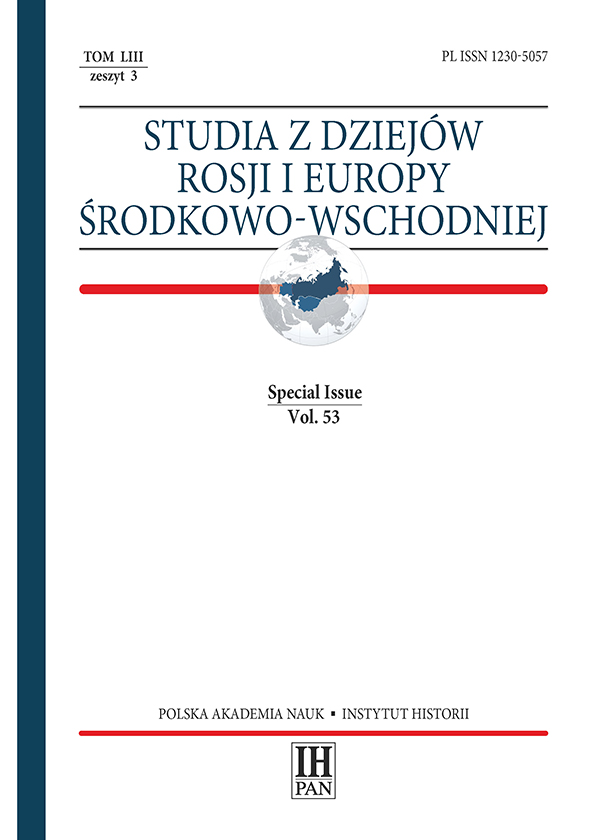Antecedents of the internment of the highest authorities of the Second Polish Republic in Romania in September 1939
Antecedents of the internment of the highest authorities of the Second Polish Republic in Romania in September 1939
Author(s): Henryk WalczakSubject(s): History, Diplomatic history, Military history, Political history, Recent History (1900 till today), Interwar Period (1920 - 1939)
Published by: Instytut Historii im. Tadeusza Manteuffla Polskiej Akademii Nauk
Keywords: Poland; Romania; the Polish-Romanian alliance; the 1939 war; Soviet aggression; German invasion
Summary/Abstract: The aggression of the Soviet Union on Poland on 17 September 1939 faced the Kingdom of Romania with the matter of granting aid to Poland, to which it was obliged by an alliance from 1921 onwards. The heads of the Romanian state feared sharing the fate of the Polish Republic, which fell victim not only to the USSR, but had also been defending itself for more than two weeks against an assault by the Third Reich. Wishing to save their country from a catastrophe, they were looking for a way to evade their alliance duties towards Poland. Meanwhile, in the face of an imminent disaster, Polish leaders made steps to transfer the political leadership of the country to France, in order to continue fighting for victory alongside the Western allies. To move there, they needed to obtain an agreement from Romania to transfer to one of their ports, in order to be able to continue the journey. A threat of a Soviet and German invasion meant that the authorities in Bucharest, using rather far-fetched reasons, decided to intern the Polish government.
Journal: Studia z Dziejów Rosji i Europy Środkowo-Wschodniej
- Issue Year: 53/2018
- Issue No: 3
- Page Range: 111-128
- Page Count: 18
- Language: English

